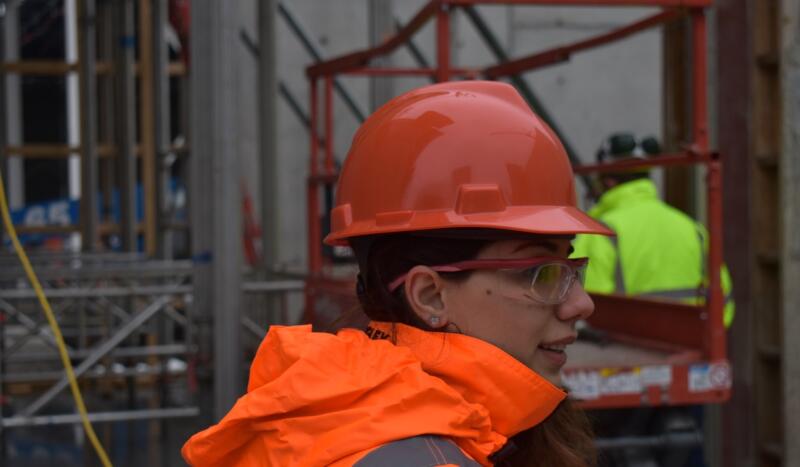If you are passionate about protecting human health and the environment, you might be interested in pursuing a career in environmental health. Environmental health is a branch of public health that focuses on how the environment affects human health and well-being. Environmental health professionals work to prevent, identify, and reduce environmental hazards that can harm people and communities.
In this article, we will explore some of the career options and educational programs in environmental health, as well as the benefits and challenges of working in this field. We will also provide some resources and tips to help you start your environmental health journey.
Table of Contents
What are Some Career Options in Environmental Health?
Environmental health is a diverse and interdisciplinary field that offers many opportunities for specialization and advancement. Depending on your interests, skills, and qualifications, you can work in various sectors, such as government, academia, industry, non-governmental organizations, or consulting firms. Some of the common career paths in environmental health include:
Environmental Health and Safety Technician
These professionals monitor and inspect workplaces, facilities, equipment, and products to ensure compliance with environmental and occupational health and safety regulations. They also collect samples, conduct tests, analyze data, prepare reports, and provide recommendations to prevent or correct hazards. They may specialize in areas such as air quality, water quality, waste management, radiation protection, or hazardous materials.
Environmental Consultant
These professionals provide expert advice and solutions to clients on environmental issues, such as environmental impact assessment, environmental management systems, environmental auditing, environmental policy development, environmental remediation, or sustainability. They may work for consulting firms or as independent contractors. They may also conduct research, survey, prepare proposals, or manage projects.
Public Health Engineer
These professionals design, implement, and evaluate engineering solutions to improve public health and environmental quality. They may work on projects such as water supply and treatment systems, wastewater management systems, solid waste management systems, air pollution control systems, or renewable energy systems. They may also collaborate with other professionals, such as public health officials, urban planners, architects, or civil engineers.
Environmental Scientist or Specialist
These professionals study the interactions between humans and the environment and how they affect human health and ecological systems. They may conduct research, collect data, perform experiments, analyze results, or develop models. They may also communicate their findings to various audiences, such as policymakers, stakeholders, media, or the public. They may specialize in toxicology, epidemiology, ecology, biostatistics, or climate change.
These are just some examples of the many career options in environmental health. Other possible roles include environmental educator, environmental lawyer, environmental policy analyst, environmental health manager, environmental health officer, or environmental health researcher.
What are Some Educational Programs in Environmental Health?
To pursue a career in environmental health, you must have a relevant education that provides you with the knowledge and skills to address environmental health challenges. The level and type of education you need will depend on your specific career goals and employer requirements.
Generally, you will need at least a bachelor’s degree in environmental health or a related field, such as environmental science, environmental engineering, public health, or biology.
Here are some examples of reputable programs that you can consider:
Associate of Applied Science in Environmental Health and Safety
This program prepares students for entry-level positions as environmental health and safety technicians. It covers occupational safety and health, hazardous materials management, environmental regulations, and emergency response. It can be completed in two years at a community college or vocational school.
Bachelor of Science in Environmental Health
This program provides students with a comprehensive environmental health science and practice foundation. It covers topics such as environmental toxicology, environmental microbiology, environmental epidemiology, environmental policy, and risk assessment. It can be completed in four years at a college or university.
If you find article useful, don't miss out on the valuable insights and information available in our other related posts:
Master of Public Health with a focus on Environmental Health
This program prepares students for advanced positions or leadership roles in environmental health. It covers topics such as environmental health assessment, environmental health management, environmental health research, and environmental health communication. It can be completed in two years at a graduate school or online.
Doctor of Philosophy in Environmental Health
This program trains students to become independent researchers or scholars in environmental health. It covers topics such as environmental health theory, methodology, and analysis. It requires students to conduct original research and write a dissertation on a specific environmental health topic. It can take four to six years to complete at a graduate school.
What are Some of the Benefits and Challenges of Working in Environmental Health?
Working in environmental health can be rewarding and fulfilling, as you will have the opportunity to make a positive difference in the health and well-being of people and the planet. You will also be able to work on diverse and interesting projects, collaborate with other professionals, and learn new things daily.
Some of the benefits of working in environmental health include:
- Contributing to the prevention and reduction of environmental health problems, such as pollution, disease, or climate change
- Improving the quality of life and health outcomes of individuals and communities
- Protecting and conserving natural resources and ecosystems
- Promoting environmental awareness and education
- Developing innovative and sustainable solutions to environmental health challenges
- Enhancing your professional development and career prospects
However, working in environmental health can also be challenging and demanding, as you will have to deal with complex and dynamic situations, cope with uncertainty and ambiguity, and balance multiple priorities and stakeholders. You will also have to face ethical, social, political, or economic barriers that may limit your ability to implement or evaluate your interventions.
Some of the challenges of working in environmental health include:
- Dealing with incomplete or conflicting data and information
- Managing uncertainty and risk in environmental health decision-making
- Communicating effectively with diverse audiences and stakeholders
- Navigating environmental regulations and policies
- Addressing environmental health disparities and inequities
- Facing resistance or opposition from some groups or individuals
- Coping with stress and burnout
How to Get Started in Environmental Health?
If you are interested in pursuing a career in environmental health, there are some steps you can take to prepare yourself and increase your chances of success. Here are some tips to help you get started:
- Explore your interests and goals: Think about what aspects of environmental health appeal to you, what skills and strengths you have, what challenges you want to solve, and what career path you want to follow. You can also research different career options and educational programs in environmental health to see what suits you best.
- Get educated: Pursue a relevant degree in environmental health or a related field that matches your interests and goals. Choose a program that provides you with a solid foundation in environmental health principles and practices and opportunities for specialization, research, or practical experience.
- Gain experience: Seek opportunities to apply your knowledge and skills in real-world settings, such as internships, volunteer work, fieldwork, or projects. You can also join professional associations, networks, or clubs related to environmental health to expand your connections and learn from others.
- Stay updated: Keep yourself informed about the latest developments and trends in environmental health by reading journals, magazines, blogs, podcasts, or newsletters. You can also attend webinars, workshops, conferences, or courses to update your skills and knowledge.
- Be flexible: Be open to new opportunities and challenges that may arise in your environmental health career. Be willing to adapt to changing circumstances, learn from feedback, collaborate with others, and embrace diversity.
The Bottom Line
Environmental health is an exciting field that offers many career opportunities for those who want to protect human health and the environment. By pursuing a career in environmental health, you can impact the world while positively enjoying personal and professional growth.





